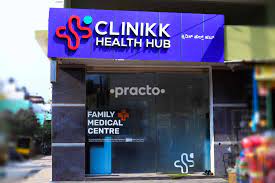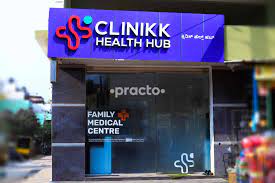Health hubs have emerged as integral components of the modern healthcare landscape, providing comprehensive and accessible services to individuals and communities. In this article, we delve into the significance of health hubs, their services, benefits, challenges, and their potential impact on public health.
Strategies include securing funding, recruiting qualified staff, leveraging technology, and implementing outreach programs.

Table of Contents
What is a Health Hub?
A health hub is a centralized space or system designed to support individuals in their journey towards better health and wellness. It serves as a focal point where various aspects of health, including physical, mental, and emotional well-being, converge to provide comprehensive support and guidance. Think of it as a one-stop destination equipped with resources, tools, and professionals dedicated to promoting holistic wellness.A health hub is a centralized facility that offers a wide range of healthcare services under one roof. Unlike traditional healthcare settings, which may focus solely on treating illnesses, health hubs adopt a holistic approach to health and wellness. They aim to address the physical, mental, and social aspects of well-being, promoting preventive care and overall health improvement.
Components of a Health Hub
Physical Fitness Zone: A crucial element of any health hub is a designated area for physical exercise and activity. This could range from a fully-equipped gym with cardio and strength training equipment to yoga and meditation studios. Incorporating regular exercise into your routine not only improves physical health but also enhances mood and cognitive function.
Nutrition Corner: Good nutrition is the cornerstone of a healthy lifestyle. A health hub should offer access to nutritional guidance, meal planning services, and perhaps even a healthy cafe or smoothie bar. Educating individuals about the importance of balanced nutrition and providing resources to make healthier food choices empowers them to take control of their dietary habits.
Mental Health Resources: In today’s fast-paced world, prioritizing mental health is more important than ever. A health hub should provide access to mental health professionals, support groups, and mindfulness practices such as meditation and relaxation techniques. Creating a supportive environment where individuals feel comfortable discussing their mental health concerns is essential for overall well-being.
Health Education Center: Knowledge is power when it comes to health. A dedicated space for health education workshops, seminars, and informational sessions can empower individuals to make informed decisions about their health. Topics could range from chronic disease management to stress reduction techniques, catering to the diverse needs of the community.
Community Engagement Initiatives: Building a sense of community fosters accountability and support in the journey towards better health. Organizing group fitness classes, walking clubs, or health challenges encourages social interaction and creates a supportive network of like-minded individuals striving towards similar goals.
Technology Integration: Leveraging technology can enhance the effectiveness and accessibility of a health hub. From fitness tracking apps to telemedicine services, incorporating innovative technological solutions can streamline processes and provide personalized support to users.
Benefits of a Health Hub
Comprehensive Support: By consolidating various health resources under one roof, a health hub provides individuals with comprehensive support tailored to their specific needs and goals.
Convenience: Accessibility is key to maintaining a healthy lifestyle. A health hub offers convenience by eliminating barriers such as travel time between different facilities, making it easier for individuals to prioritize their health.
Empowerment: Empowering individuals with knowledge, tools, and support enables them to take ownership of their health journey, leading to long-term behavior change and improved outcomes.
Sense of Community: Creating a supportive community within a health hub fosters motivation, accountability, and camaraderie among participants, enhancing the overall experience and adherence to healthy habits.
Preventative Approach: By promoting proactive health management and preventive care, a health hub helps individuals identify and address potential health risks before they escalate, ultimately reducing the burden of chronic diseases.
Importance of Health Hubs in Today’s Society
In today’s fast-paced world, where access to healthcare can be challenging for many individuals, health hubs play a crucial role in bridging the gap. They serve as one-stop destinations for individuals to seek medical attention, receive preventive care, and access specialized treatments.
Services Offered by Health Hubs
Primary Healthcare
Health hubs offer primary healthcare services, including routine check-ups, vaccinations, and treatment for common illnesses. These services are essential for maintaining overall health and addressing minor health concerns before they escalate.
Preventive Care
Preventive care is a cornerstone of health hubs, focusing on disease prevention and health promotion. This includes screenings, wellness exams, and education on healthy lifestyle practices to empower individuals to take control of their health.
Specialized Treatments
Many health hubs also provide specialized treatments and services tailored to specific health needs, such as chronic disease management, mental health counseling, and rehabilitation programs.
Accessibility and Convenience
One of the key advantages of health hubs is their accessibility and convenience. By offering multiple services in one location, they eliminate the need for individuals to visit multiple healthcare providers, saving time and effort.
Benefits of Utilizing Health Hubs
Holistic Approach to Health
Health hubs emphasize a holistic approach to health, addressing not only physical ailments but also mental and social well-being. By considering the whole person, they can provide more comprehensive and effective care.
Personalized Care
Health hubs prioritize personalized care, taking into account each individual’s unique needs, preferences, and circumstances. This tailored approach enhances patient satisfaction and outcomes.
Community Engagement
Health hubs serve as community hubs, fostering engagement and collaboration among healthcare providers, patients, and the community at large. They often host health fairs, educational workshops, and support groups to promote health awareness and social connections.
Challenges Faced by Health Hubs
Despite their many benefits, health hubs also face challenges, such as financial constraints, workforce shortages, and technological barriers. Additionally, reaching underserved populations and addressing health disparities can be challenging.
Overcoming Challenges: Strategies for Success
To overcome these challenges, health hubs can implement various strategies, such as securing funding through grants and partnerships, recruiting and retaining qualified staff, leveraging technology to improve efficiency, and implementing outreach programs to reach vulnerable populations.
Impact of Health Hubs on Public Health
Health hubs have the potential to have a significant impact on public health by promoting wellness, preventing disease, and improving access to healthcare services. By addressing the root causes of health issues and empowering individuals to make healthier choices, they can contribute to healthier communities.
Case Studies: Successful Health Hub Models
Several successful health hub models exist around the world, showcasing the effectiveness of this approach to healthcare delivery. Case studies highlight innovative practices, positive outcomes, and lessons learned that can inform the development and implementation of future health hubs.
Future of Health Hubs
As the healthcare landscape continues to evolve, the role of health hubs is expected to expand. They will likely play an increasingly important role in delivering integrated, patient-centered care and addressing the complex health needs of populations.
Focus of Health Hub
In conclusion, health hubs are invaluable assets in modern healthcare, offering comprehensive, accessible, and patient-centered services. By addressing the diverse needs of individuals and communities, they have the potential to improve health outcomes, reduce disparities, and promote overall well-being.
What exactly is a health hub?
A health hub is a centralized facility that provides a wide range of healthcare services under one roof, focusing on holistic health and wellness.
What services can I expect to find at a health hub?
Health hubs offer primary healthcare, preventive care, and specialized treatments, tailored to individual needs.
How do health hubs benefit communities?
Health hubs promote community engagement, personalized care, and a holistic approach to health, contributing to healthier communities.
What are some challenges faced by health hubs?
Challenges include financial constraints, workforce shortages, and addressing health disparities.

